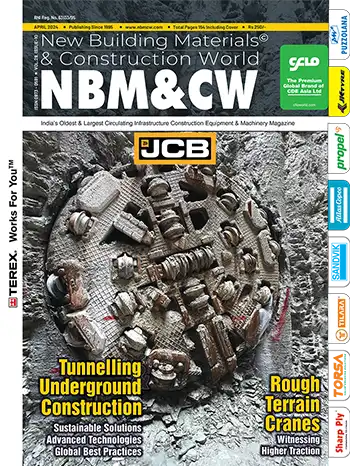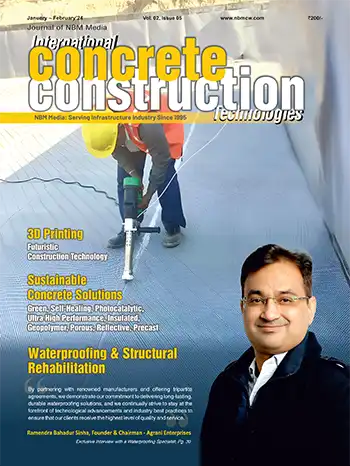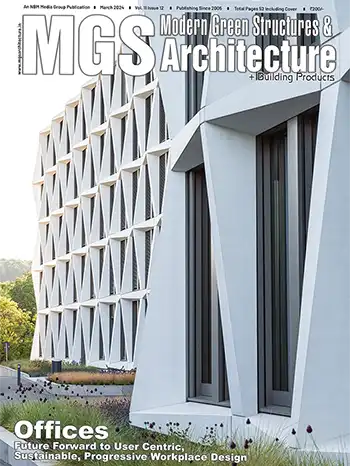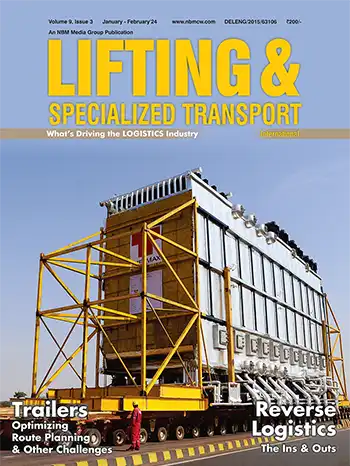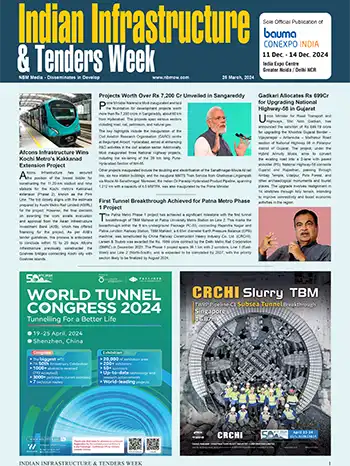Versatility is our strength

What are your observations on the growth of the country’s construction sector? Do you find the buoyancy to pass through certain corrections in due course?
The growth story of India’s construction industry would continue to happen. Large-scale infrastructure deficit in the country, in terms of requirements of airports, ports, roads, power as well as residential and commercial space would make the growth continue exponentially. With the government’s renewed focus on infrastructure creation, to meet the 9 percent GDP growth during the 11th five-year plan period, there is not much room for correction in the growth story happening. Government’s initiative to undertake core construction projects through the Public Private Partnership (PPP) route would provide a necessary shot in the arm to the ongoing positive growth trend for the construction industry. However, the challenge for the government would be to identify a large number of bankable projects. This would enable the PPP initiative gain further ground and have direction.
Led by the growth of the construction sector—do you also find the construction equipment industry getting commensurately matured? Kindly highlight, what are the factors behind the development process?
There is a definite maturation process happening in the Indian construction equipment industry. On a macro level, the overall growth of the construction industry is making equipment manufacturers put in business process models to meet the burgeoning demand of the construction industry. This is one part of the maturity being exhibited on the part of the equipment manufacturers. But in an even more significant way, there is an increasing trend to mechanise, shift from usage of smaller capacity equipment to bigger capacities in order to gain efficiency of scale as also a shift to equipment having more technologically advanced features. This has brought in wider product ranges as well as more advanced equipment.
The change in demand is being driven by the large size projects and rigid project completion schedules. Large size equipment with advanced features are enabling construction companies to have proportionate quality output and also to complete the projects within the scheduled time frame. But I would like to say that today customers are more aware and exacting as compared to five or seven years ago and are keen on getting maximum utilization of the equipment. This, as a consequence is making the equipment industry manufacture advanced products.
Do you find similar level changes happening in the excavators market as well?
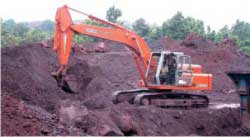
The assorted market demand is being led by the construction of infrastructure requiring higher capacity equipment as well as from urban infrastructure which have a different set of equipment capacity needs. Excavators being an integral part of any construction activity are required in ever increasing numbers. Today, the demand is shifting in every segment to the next higher model category for better outputs to accelerate work and meet tighter deadlines.
How is Telcon positioned to meet this assorted demand with its product line. Besides, how are the excavators manufactured by Telcon placed in terms of its capacity and features?
Telcon has been serving the demands of the Indian construction industry for over four decades now with a wide and versatile range of excavators. Our range consists of capacities from 2 tonnes to 120 tonnes of capacity and even beyond through direct imports from our Principals.The wide range of excavators manufactured by us caters to the different segments of the market. This ability to address every diverse application through customized solutions with an eye on operating costs of the customer is the strength of the Telcon brand, which is unique. With the range of excavators on offer, Telcon enjoys a market share of 55% in the Indian excavator market. The machines have technologically advanced features. Rugged under carriage design and heavy-duty structures make for robustness of performance. Telcon excavators also offer electronic diagnostic and data logging systems for tracking equipment usage and performance. Besides, the machines are fuel-efficient and can also be offered with compliance to Euro-3 pollution norms. This in turn makes the machines environment friendly.
With burgeoning ongoing demand in place and keeping the high forecast future demand, what are your initiatives to ramp up your production facilities—in view?
We are undertaking a systematic initiative in expanding our production operations. Telcon would be coming up with its third plant at Kharagpur, near Kolkata in West Bengal during the year 2008. Telcon has presently one plant each at Jamshedpur and Dharwad, which are utilizing 60- 70 percent of their production capacity. With the green field plant coming up, Telcon would have a comfortable production capacity both to meet the ongoing demand effectively and the large scale demand as projected.
With cost of production going up, what have been your initiatives to make the products price competitive?
To make our products price competitive, Telcon on a sustainable basis is rationalizing its production and operational costs within the organization. This apart, the company is laying emphasis in cutting down its raw material and component procurement costs. The two initiatives have significantly enabled the company to check its production costs from escalating.
What about Telcon’s after–sales support system?
Telcon’s after–sales support system has a wider connotation. It is not merely restricted in providing spares and components to the machines, post sales, in the event of any break down, but lay emphasis in showing the customers how to extract the full benefits of all the features built in. It is a critical paradox that in India, excavators whether in mining or construction are not utilized to their full capacity as compared to markets in Australia, U.S or even Indonesia. Many of the Indian customers take pride in deploying a number of machines at the site rather than undertaking the work through an optimized fleet. This escalates the cost of the project at times.
To correct the tendency, we lay great emphasis on training and making the customer well acquainted with the operational features of the machines so as to enable him to utilize the machines fully. In addition to this, we offer customized support solutions and maintenance packages where at a mutually agreed cost, we maintain the equipment for the customer over its lifetime. We have entered into such agreements with a number of corporates and contractors.
To make our after sales support system run smoothly through ensuring component support, we have one mother warehouse at Nagpur and four feeder warehouses. Besides, we have 35 dealers operating throughout the country and 70 outlets for providing after–sales service support. All this infrastructure is supported strongly through sound and reliable delivery systems and processes.
NBMCW May 2007














